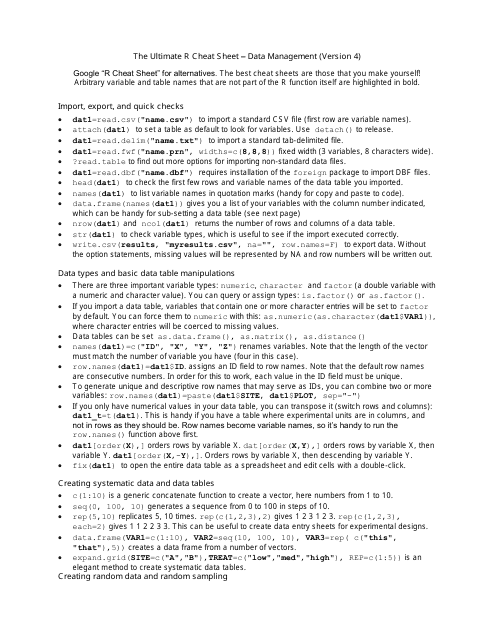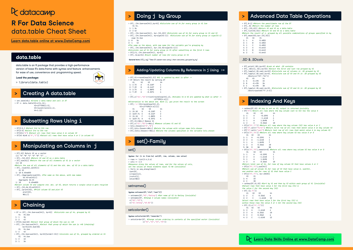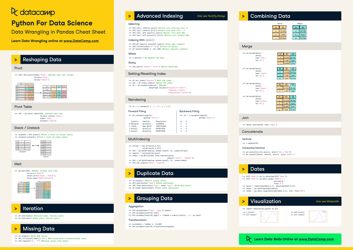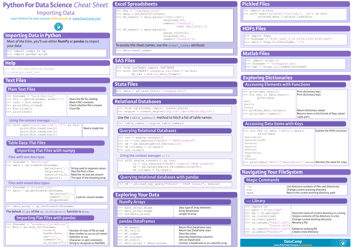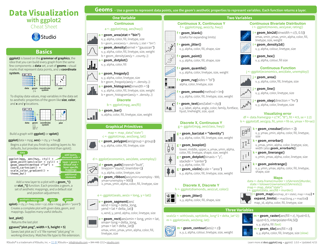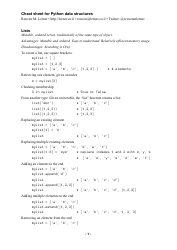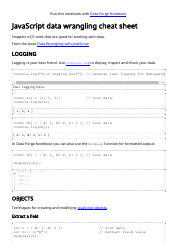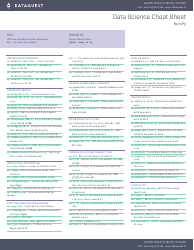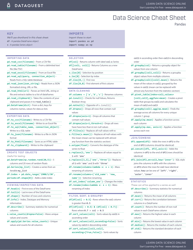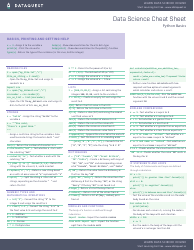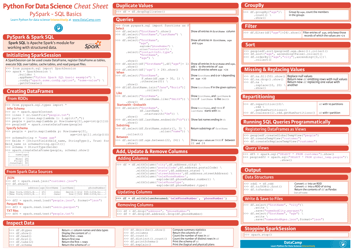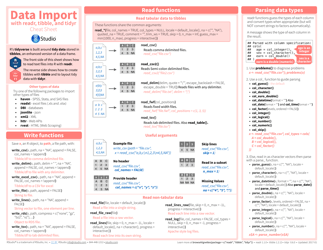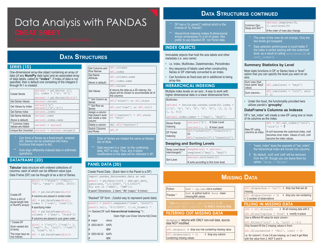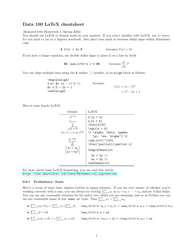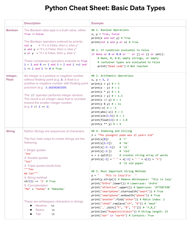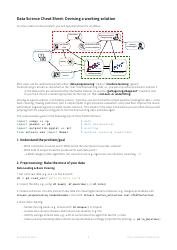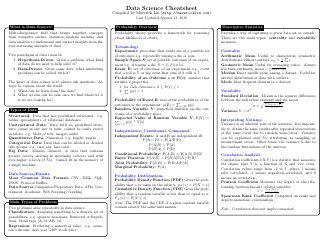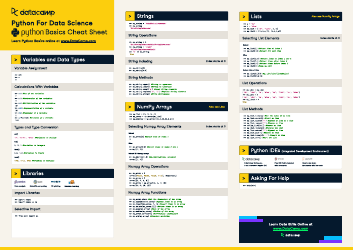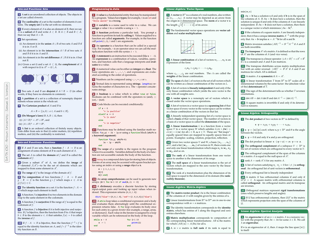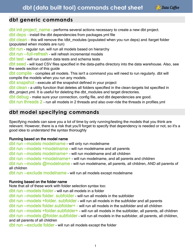R Cheat Sheet - Data Management
The R Cheat Sheet - Data Management is a reference guide for managing data using the R programming language. It provides quick and handy information on various functions and techniques related to data manipulation, organization, and analysis in R.
The R Cheat Sheet - Data Management is a resource that can be used by anyone who is working with the R programming language for data management tasks, including data analysis, manipulation, and organization. Therefore, there is no specific entity or organization that "files" this cheat sheet. It is typically created and maintained by the R community, which consists of R developers, researchers, and users who contribute their expertise and knowledge to support the R programming language.
FAQ
Q: What is R?
A: R is a programming language and software environment primarily used for statistical computing and graphics.
Q: What is a cheat sheet?
A: A cheat sheet is a concise document that provides a quick reference guide for a particular topic or subject.
Q: What is data management?
A: Data management refers to the process of acquiring, organizing, storing, and analyzing data in a systematic and efficient manner.
Q: Why is data management important?
A: Data management is important because it helps ensure data integrity, accuracy, and reliability, allowing data to be used effectively for decision making and analysis.
Q: What are some basic data management tasks in R?
A: Some basic data management tasks in R include importing and exporting data, manipulating and transforming data, and cleaning and preprocessing data.
Q: How can I import data in R?
A: You can import data in R using functions like read.csv() for reading CSV files, read.table() for reading tabular data, or read_excel() for reading Excel files.
Q: What are some common data manipulation functions in R?
A: Some common data manipulation functions in R include subset(), filter(), mutate(), and arrange(), which allow you to subset, filter, create new variables, and sort data, respectively.
Q: What is data cleaning in R?
A: Data cleaning in R involves identifying and handling missing values, removing duplicates, handling outliers, and transforming variables to ensure data quality and reliability.
Q: What is data preprocessing in R?
A: Data preprocessing in R involves transforming and preparing data for analysis, such as scaling variables, encoding categorical variables, or handling skewed distributions.
Q: What are some packages in R for data management?
A: Some popular packages in R for data management include dplyr, tidyr, readr, and stringr, which provide various functions and tools for data manipulation and processing.
